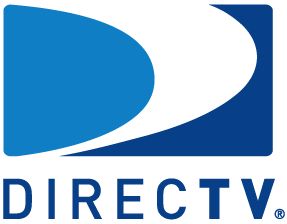Top Class Actions’s website and social media posts use affiliate links. If you make a purchase using such links, we may receive a commission, but it will not result in any additional charges to you. Please review our Affiliate Link Disclosure for more information.

DirecTV had argued in a petition it sent to the Supreme Court on Oct. 21, 2014 that the decision by the state appellate court, which concluded that the language in DirecTV’s arbitration agreement deferred to California state law including a part of the law that prohibits giving up the right to file a class action lawsuit, conflicts with decisions in federal lawsuits.
DirecTV told the Supreme Court that the Federal Arbitration Act demands that the arbitration clause of a contract ought to preempt state law and that the ruling by the Ninth Circuit Court of Appeals argument under the Supremacy Clause.
The satellite TV provider cited a Supreme Court decision, AT&T Mobility LLC v. Concepcion, in which the high court had ruled that arbitration agreements ought to be enforced by the FAA over a California law on the matter.
“The FAA, as this court has stated time and again, establishes a substantive federal policy in favor of arbitration, which requires both federal and state courts to enforce arbitration agreements according to their terms and to resolve any doubts in favor of arbitration,” the petition to the court over the DirecTV class action lawsuit said.
“The California Court of Appeals made a mockery of this federal policy, and this court’s recent decision in Concepcion, by refusing to enforce federal arbitration rights here on a theory that the Ninth Circuit has described as ‘nonsensical.'”
The California court of Appeals ruled in April 2014 that the DirecTV arbitration agreement was not enforceable under California law, and upheld the lower court’s decision that the AT&T Mobility decision did not apply to DirecTV in this case.
The panel of judges in the appellate court cited a portion of the DirecTV arbitration agreement, which states that “if the law of your state would find this agreement to dispense with class arbitration procedures unenforceable, then this entire [arbitration section] in unenforceable.”
Classwide arbitration is banned by California under its Consumer Legal Remedies Act.
In addition, the California Court of Appeals said that the Ninth Circuit lacked authority to take the position it took, saying that “contract interpretation is irrelevant because the parties are powerless to opt out of the FAA by contract.”
However, if “parties have agreed to abide by state rules of arbitration, enforcing those rules according to the terms of the agreement is fully consistent with the goals of the FAA.”
The DirecTV class action lawsuit was filed in 2008 by plaintiffs Amy Imburgia and Marlene Mecca, whom alleged that consumers agreed to contracts via phone or during the installation process, but that the satellite TV company withheld information about early termination fees.
The class was certified in the Los Angeles Superior Court in April 2011. The AT&T decision came down in May 2011, after which DirecTV attempted to have the class action lawsuit decertified.
DirecTV is represented by Christopher Landau, Melissa D. Ingalls, Robyn E. Bladow and Shaun Paisley of Kirkland & Ellis LLP.
The plaintiffs are represented by Paul D. Stevens, Mayo L. Makarczyk and Shireen Mohsenzadegan of Milstein Adelman LLP, Ingrid Maria Evans and Elliot C. Wong of Evans Law Firm Inc, F. Edie Mermelstein of the Law offices of F. Edie Mermelstein and Harvey Rosenfield and Pamela Pressley of Consumer Watchdog.
The DirecTV Class Action Lawsuit is DirecTV Inc. v. Amy Imburgia, et al., Case No. 14-462, in the Supreme Court of the United States.
ATTORNEY ADVERTISING
Top Class Actions is a Proud Member of the American Bar Association
LEGAL INFORMATION IS NOT LEGAL ADVICE
Top Class Actions Legal Statement
©2008 – 2024 Top Class Actions® LLC
Various Trademarks held by their respective owners
This website is not intended for viewing or usage by European Union citizens.














